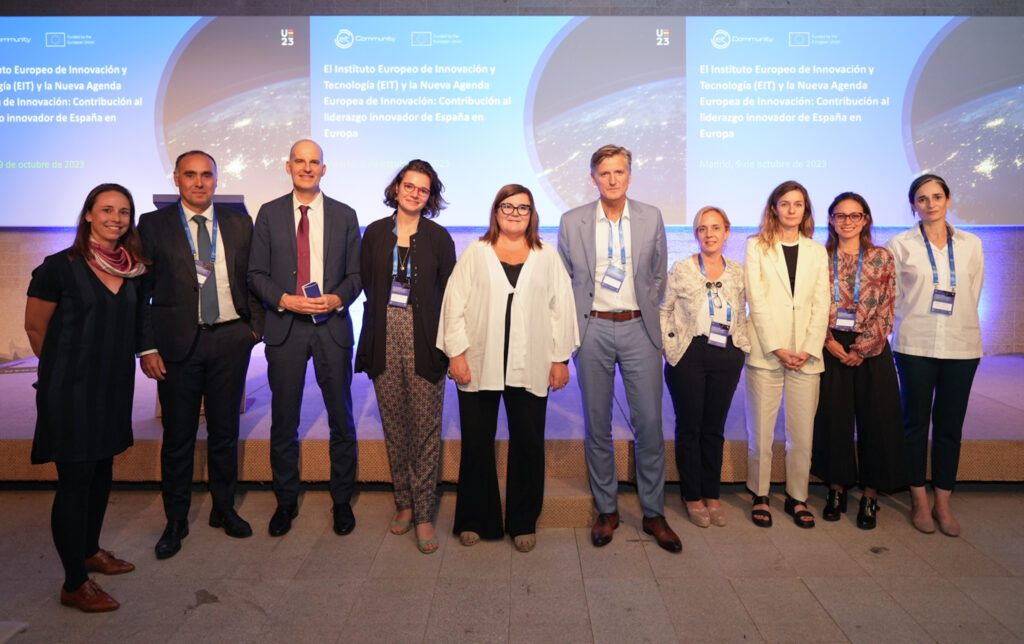EIT Community boosts innovation in Spain and leadership in Europe
The Spanish innovation ecosystem met yesterday at an event organised by EIT Community under the title ‘The European Institute of Innovation and Technology (EIT) and the New European Innovation Agenda’. At the event, the importance of the interdisciplinary and intersectoral approach to boost innovation in our country and its leadership in Europe, in line with the new European Innovation Agenda, was discussed.
EIT Community, Europe’s largest innovation ecosystem, has renewed its commitment to innovation in Spain through its various communities and programmes. In the last two years, EIT has supported hundreds of startups and invested more than €100 million in Spain, helping to bring more than 80 innovative products to market.
EIT Community, the largest innovation ecosystem in Europe, is a decisive agent for boosting innovation in Spain and contributing to its leadership in Europe. This was stated yesterday by the leaders of the various Knowledge and Innovation Communities in Spain of the European Institute of Innovation and Technology (EIT), a body of the European Union. The event, held yesterday in Madrid and organised by EIT Manufacturing, EIT Health, EIT Climate-KIC, EIT Culture & Creativity, EIT Digital, EIT Food, and EIT Urban Mobility, was also attended by the Director General of the CDTI, Javier Ponce, and the Secretary-General of Innovation, Teresa Riesgo, and brought together a large part of the Spanish innovation ecosystem.
This satellite event of the official agenda organised under the Spanish Presidency of the Council of the European Union brought together a large part of the Spanish innovation ecosystem and emphasised the importance of collaborative and interdisciplinary work promoted by the different EIT Communities to tackle the complex challenges facing today’s society. In particular, several cross-sectoral programmes developed by the EIT Community to boost Spain’s innovative leadership in Europe and to support the New European Innovation Agenda, approved by the Commission in July, were highlighted. This agenda aims to position Europe at the forefront of the new wave of deep-tech innovation and to help develop new technologies to address the most pressing societal challenges and bring them to the market, impacting sectors such as renewable energy, agri-tech, mobility, health, food security and energy independence, among others.

Izabel Alfany, Antoni Pijoan, Martin Kern, Caroline Viarouge, Teresa Riesgo, Jean-Marc Bourez, Àurea Rodríguez, Elena Contioso-Fleming, Carolina Torregrosa y María García

